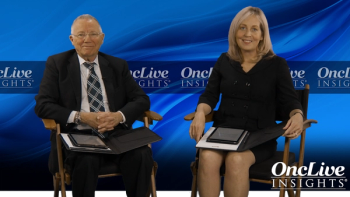
Ralph Boccia, MD, FACP, and Hetty Carraway, MD, review Myelodysplastic Syndromes [MDS] risk stratification criteria used in their practices.

Your AI-Trained Oncology Knowledge Connection!


Ralph Boccia, MD, FACP, and Hetty Carraway, MD, review Myelodysplastic Syndromes [MDS] risk stratification criteria used in their practices.

The combination of enfortumab vedotin-ejfv and pembrolizumab generated rapid and durable responses and demonstrated a manageable safety profile in patients with locally advanced or metastatic urothelial carcinoma who were ineligible for cisplatin.
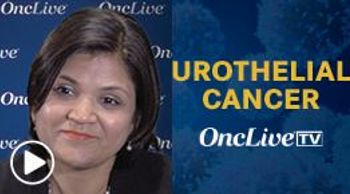
Shilpa Gupta, MD, discusses the real-world benefit that may be derived based on findings from the long-term analysis of the phase 3 JAVELIN Bladder 100 trial in patients with advanced urothelial carcinoma.

As improved cancer therapies are helping patients live longer, the safe and effective management of lung cancer brain metastases is coming to the fore.

Shilpa Gupta, MD, discusses the background of the phase 3 JAVELIN Bladder 100 trial in patients with advanced urothelial carcinoma.
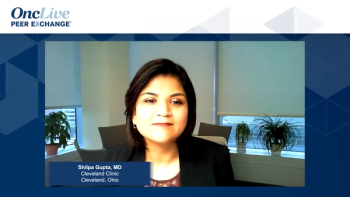
Closing out their discussion on urothelial carcinoma, key opinion leaders share clinical pearls and excitement for the evolving treatment landscape.
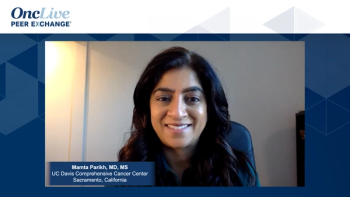
A brief review of second-line and subsequent treatment strategies in metastatic urothelial carcinoma and novel therapies being explored in this space.
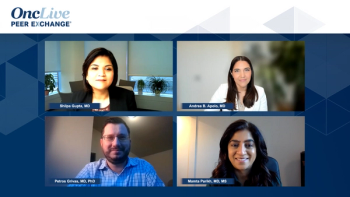
Shared insight on clinical trial data behind the intensification of maintenance immunotherapy in patients with metastatic urothelial carcinoma.
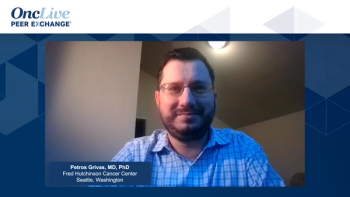
Centering discussion on several key clinical trials, expert panelists reflect on data behind maintenance avelumab in metastatic urothelial carcinoma.

Shilpa Gupta, MD, discussed the significance of the phase 3 JAVELIN Bladder 100 trial in urothelial cancer, updated data on the use of avelumab maintenance therapy following first-line chemotherapy in this population, and how this research could better inform patient-provider conversations about this option in the clinic.
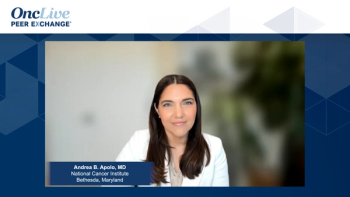
A panel of four key opinion leaders discuss the role of maintenance therapy in metastatic urothelial carcinoma and how its use has impacted the treatment landscape.

A brief review of the appropriate number of chemotherapy cycles to utilize in the setting of metastatic urothelial carcinoma.
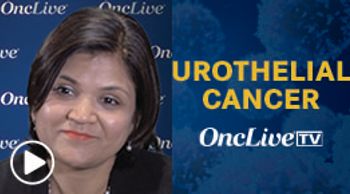
Shilpa Gupta, MD, discusses findings from a long-term analysis of the phase 3 JAVELIN Bladder 100 trial in patients with advanced urothelial carcinoma.

First-line avelumab maintenance therapy prolonged survival in patients with advanced urothelial carcinoma, regardless of response to first-line chemotherapy, according to findings from an exploratory subgroup analysis of the phase 3 JAVELIN Bladder 100 trial.

Switching their focus to the metastatic urothelial carcinoma treatment landscape, panelists identify cornerstone frontline treatment options.

A comprehensive review of novel treatment strategies in MIBC, including perioperative therapy, and respective ongoing clinical trials.
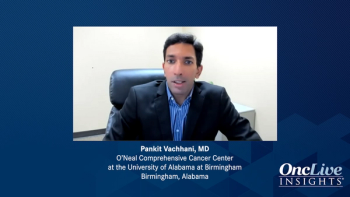
Shared closing thoughts on the future treatment landscape for myeloproliferative neoplasms, including future and emerging areas of research and remaining areas of unmet need.
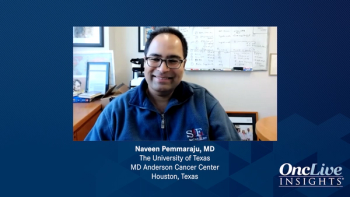
A review of recent trial data evaluating combination therapy approaches with ruxolitinib in myelofibrosis, including the rationale and potential clinical benefits associated with the use of these emerging strategies.

Expert panelists reflect on the molecular subtyping of patients to predict response to neoadjuvant therapy in Bladder BRIDGister.

Shared insight on the combination of gemcitabine, cisplatin, and nivolumab in patients with muscle-invasive bladder cancer in the HCRN GU 16-257 trial.

Focused discussion on emerging trial data surrounding novel, investigational therapies for myelofibrosis.

Expert perspectives on treatment sequencing strategies with JAK inhibitors for myelofibrosis.

Focused discussion on the RETAIN BLADDER study, which explored the option to avoid cystectomy in patients with good response to systemic therapy.

Continuing their discussion on adjuvant therapy in in muscle-invasive bladder cancer, panelists identify the utility of minimal residual disease testing.

Shared insights on monitoring strategies for myelofibrosis, including important considerations for patients receiving treatment with JAK inhibitors.
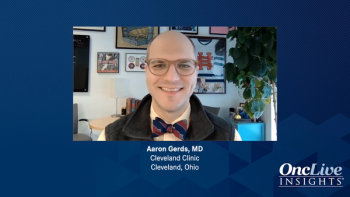
Panel experts briefly review supporting data for the use of JAK inhibitors in myelofibrosis and discuss the impact of emerging data on the current treatment landscape.

Elias Jabbour, MD; Harry Paul Erba, MD, PhD; Anjali Advani, MD; and Sameem Abedin, MD, discuss key updates pertaining to the leukemia treatment landscape that were presented at the 64th American Society of Hematology (ASH) Annual Meeting and Exposition.

Centering discussion on several clinical trials, key opinion leaders reflect on the role of adjuvant therapy in muscle-invasive bladder cancer.

Expert perspectives on the evolving role of neoadjuvant therapy in muscle-invasive bladder cancer (MIBC) with considerations for mainstay regimens.

Expert perspectives on how to identify and assess patients with myelofibrosis for transplant therapy.